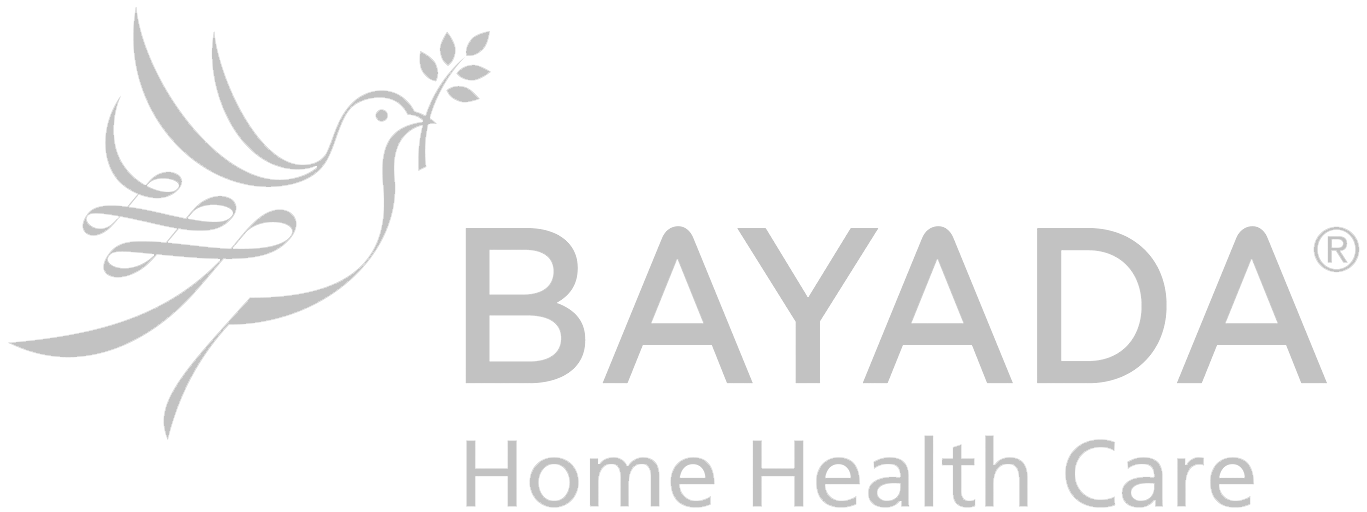5 Characteristics Of A Crisis Communication Call Center
- byGabby Rolette
- onMarch 20, 2020
- inTips
Disaster can strike anytime, and it doesn’t care if you’re prepared or not. While medical professionals are working overtime to care for the sick, businesses all over are struggling with their ability to service customers. Whether we’re talking about a global pandemic like COVID-19 or a local emergency, businesses need to have a crisis communication plan in place. Your customers need to be able to reach you, no matter what.
While many companies will recover from this current pandemic, hundreds of small businesses are feeling overwhelmed. Customer service teams are dealing with spikes in customer service requests for information and service changes – and even cancellations and refund requests from customers who are just unsure of what to expect in the future and planning for the worst. Maintaining communications with your customers is essential, and not easy. While business can’t control what happens in the world, they can control how they respond to it — which is why emergency call center services are an essential part to any business continuity plan.
If you are looking for a call center to handle your crisis communication, here are 5 characteristics you should be looking for to reduce the impact of the situation, any situation, on your customers.
#1. Emergency dispatching experience
People need communication during emergencies. When selecting a call center, you’ll want a center with experience handling emergency communication. Call centers can help alleviate your communication bottleneck by fielding and screening phone calls which can be funneled efficiently through your pipeline. While emergencies will vary from business to business, here are some questions to start with:
- What experience do you have dispatching during emergencies? Check what type of industries the call center is familiar with and what type of dispatching experience do they have within those industries. Not only is this helpful when assessing if the call center can work for you, but it’s also helpful to see how other businesses in your industry are handling their dispatching needs.
- What dispatching methods do you have? Many call centers offer multiple types of dispatching methods, like transferring while the caller is still on the line, hanging up with the caller and reaching out to your on-call staff, and sending messages via text, email or page.
- Do you have protocols in place to determine what is an actual emergency? If a caller is not having an emergency, the call center operator can help diffuse the situation, answer questions, create support tickets, etc. You’ll want to see what types of flexibility they have in their scripting to help determine what is an emergency and what can wait.
Once you’ve gathered information about how the call center handles emergency dispatching, you’ll be more confident in your crisis communication planning. The next step is to make sure the service has protocols in place to handle spikes in volume.
#2. High volume ready
In the initial days of any crisis, it can be an all out scramble for customers trying to find out as much information as they can. Are you still open? Can I get a refund? What models are involved in the recall? Whatever the request, you’ll need to make sure the call center has enough agents to handle the traffic. You’ll want to ask questions like:
- What happens when there is a spike in volume? When there is a spike in volume at the call center, your callers may experience a queue, or hold time while the floor supervisors work on moving agents around and changing distributions. Your callers could hear music during this time, or you may be able to insert your own custom hold greeting to play.
- Are there limitations on how many calls you can accept on my line? To protect their other clients, call centers may place caps on a line so they can only accept a certain amount of calls at a time. Any calls in excess of this number may ring busy or just be queued. You’ll want to find out what this number is, how easily can it be changed, and if there is a chance your callers will hear a busy signal when they call.
- Do you have work at home agents that can step in if necessary? Most call centers employ at least some remote agents that are able to handle your calls from home. In a situation like the current pandemic, work at home agents are necessary to provide continuity at the call center.
- How much notice would we need to provide to ramp up to handle calls? While call centers would typically ask that you provide them with a 2 week notice if you are expecting a higher call volume, emergencies don’t give notice. You’ll want to check with the call center on how quickly they can scale their workforce and adapt to the volume.
- If there is a wait time, do you offer a queue call back system? Not all call centers offer this feature, but many, including SAS, do. A queue call back system allows the caller to wait for a call back without having to actually wait on the line. They can disconnect and continue on with their business, and then once an operator becomes available, they can call the customer back.
- Are you staffed 24/7 or just during business hours? Most call centers are available to answer your calls 24 hours a day, 7 days a week. However, the heaviest staffing periods are only during high traffic periods. This model works well for US based companies, but if you are an international company, you may want to discuss the possibility of staffing during off peak hours.
With staffing models and emergency dispatching out of the way, you’ll want to see if the call center can speak your language.
#3. Multilingual support
Your customers count on you during a crisis even more than usual. There can be a lot of confusion and panic, and depending on what line of work you’re in, you may tend to see more of it than others. In order to help minimize stress and offer a sense of structure, including multilingual support for your customers is a must. If you anticipate multilingual communication, don’t leave customers without a shoulder to lean on during a crisis. Speak with your call center to see if multilingual call center support is something they offer.
- What languages do you offer customer service in? Most call centers offer both English and Spanish speaking customer service agents, but some may offer support in other languages as well like French, Mandarin, German, etc.
- Is there any additional cost for bilingual or multilingual agents? Just because a call center offers bilingual or multilingual support, doesn’t mean it’s free. While bilingual operators are easier to come by, multilingual operators are not. So, your call center may charge a premium to utilize those agents.
- Do you use a translation service for anything outside of the languages you are able to handle in house? If a call center is not able to provide multilingual support, they might be able to use a translation service to help during times of need. However, this service may also come at a premium.
With the ability to service customers in any language, you’ll need to make sure your call center is able to be there when you can’t.
#4. A solid call center crisis communication plan
Delivering constant support in a crisis is a must. That is especially true for call center companies who must maintain a high-quality level of customer service in any crisis without compromising their standards. Here are some questions you should be asking.
- Are your systems premise based or cloud based? A premise based call center system is installed locally on a business’s computer or server, whereas a cloud based system can be accessed via web browser. The difference is that customer data through a cloud based system can be accessed anywhere, but an on-premise system can only be accessed on the actual premise of the business. It’s important that most call center systems are not premise based in the event of a fire or other natural disaster that may result in a catastrophic failure.
- Do you use work at home agents? Call centers often utilize remote work from home operators, which means you don’t have to worry about employees getting sick or having to call out, which means your phones can still be answered and your customers can still be helped.
- Is it possible for you to lose power? A call center’s main job is to maintain contact and communication with its customers, so having a solid back up plan in the event of a power outage is a must. A solid call center will rely on multiple back up generators to help keep power flowing in the event of an emergency.
Now that you’ve discovered how equipped your call center is to handle a crisis, the solution needs to fit into a monthly budget.
#5. Price that fits your budget
Call center pricing varies greatly. While some centers require contracts, others can be setup quickly and operate on a month to month basis. You’ll want to ask the following questions pertaining to call center cost:
- Do you require a contract? Contracts can be good or bad, depending on your view. If your call center does require a contract and a call center service is something that you foresee needing for sometime, make sure you negotiate a low price for a long term contract. If you don’t anticipate needing a call center for a length of time, inquire if they offer something like a temporary call center with no contracts so you can provide communication continuity in a crisis, and then cancel once things go back to normal.
- If we need a quick setup, what are your options? If you’re in a pinch and need help answering calls or handling customer communication, call centers may be able to get you up and running in about 15 minutes or less – depending on your needs. Additionally, most call centers offer a base package to start with so you won’t have to worry about spending too much. If you are worried about adding extra expenses during a time of crisis, think about it like this; The more accessible you are to your customers, the less likely they are to abandon ship, which means you won’t have to kiss valuable income goodbye.
- Do you have a low package so we can keep the service active in case of emergency? If you don’t need the service every day but want to have something set up in case of emergency, see if your call center can put you on the lowest possible package to help you save money. Low packages typically don’t include a set allowance of minutes or calls, but if you’re only keeping it active for emergencies, then you most likely won’t incur many charges.
Although a crisis may drag on and seem like it will never end, eventually the world resets back to normal. Whatever customer service call volume you’re experiencing now will inevitably go back to normal. With preparation beforehand in selecting the best call center service, you can help your team cope with the unexpected.
Get started with SAS. Free 14-day call center trial.

Live call center support grows brands.
24/7 live call center services let you engage with your customers around the click. Grow your business and strengthen your brand with SAS.




